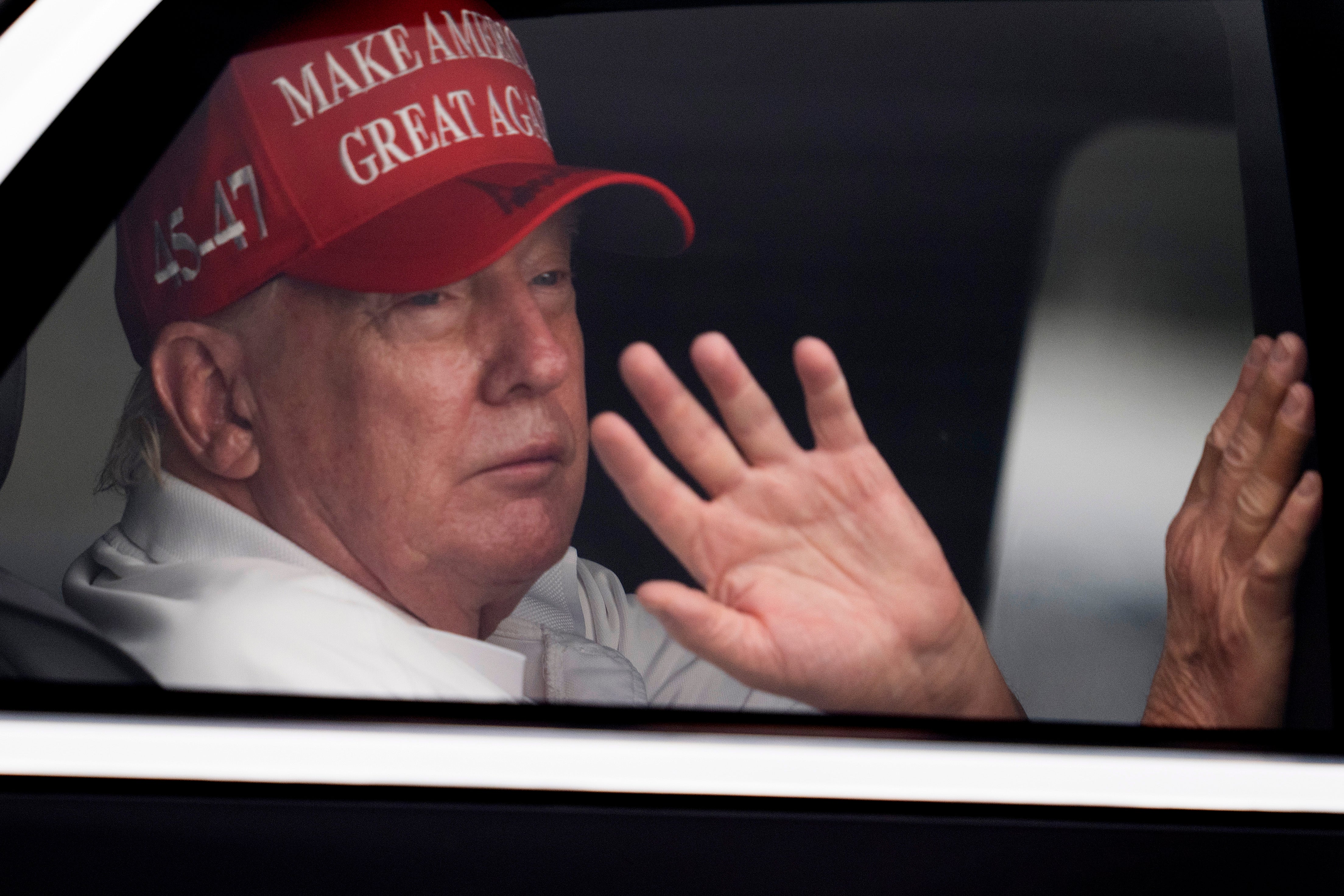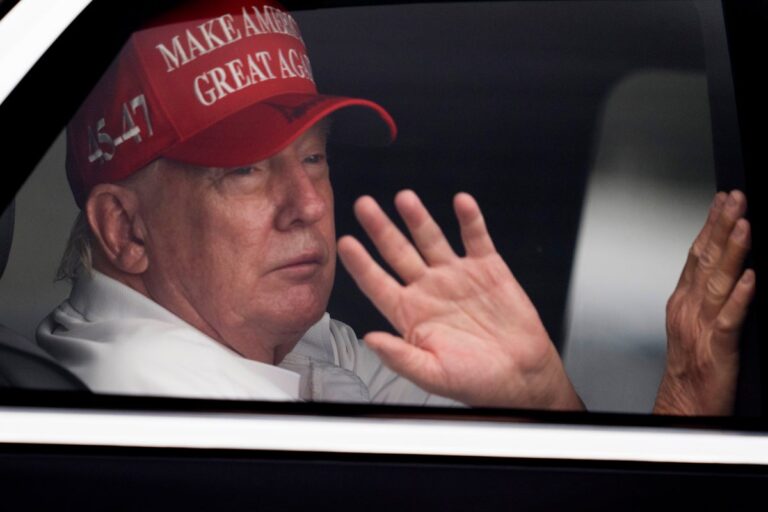Your support helps us to tell the story
From reproductive rights to climate change to Big Tech, The Independent is on the ground when the story is developing. Whether it’s investigating the financials of Elon Musk’s pro-Trump PAC or producing our latest documentary, ‘The A Word’, which shines a light on the American women fighting for reproductive rights, we know how important it is to parse out the facts from the messaging.
At such a critical moment in US history, we need reporters on the ground. Your donation allows us to keep sending journalists to speak to both sides of the story.
The Independent is trusted by Americans across the entire political spectrum. And unlike many other quality news outlets, we choose not to lock Americans out of our reporting and analysis with paywalls. We believe quality journalism should be available to everyone, paid for by those who can afford it.
Your support makes all the difference.
Read more
As President Donald Trump’s much-vaunted “Liberation Day” approaches, in which he will impose reciprocal tariffs on U.S. trading partners and a 25 percent tax on imported cars, Americans believe he is focused too much on his trade war and not enough on lowering prices.
The latest CBS News/YouGov poll, conducted on March 27-28, shows that 64 percent of respondents believe the Trump administration is not focusing enough on lowering prices, as promised in the 2024 campaign, while 55 percent believe there is too much of a focus on implementing tariffs on imports.
There is further bad news for the president in terms of whether Americans feel his policies are making them financially better or worse off.
Just before he took office, a CBS poll revealed that 42 percent of Americans expected Trump’s policies to make them better off. That has now dropped to 23 percent.
The corresponding numbers for those who feel his policies will make them worse off have flipped from 28 percent in January to 42 percent now.
Tariffs seem to be a major concern for American consumers, as 72 percent believe they will increase prices in the short term, with 47 percent saying such increases would be around for the long term, too.

Just 29 percent of those surveyed believe that Trump’s tariff policies will decrease prices in the long term as he claims.
One bright spot for the president is that voters do not blame him entirely for the inflation. Indeed, 38 percent say President Joe Biden’s policies are more responsible than Trump’s (34 percent). Some 19 percent say they are equally to blame.
While earlier polling has shown the president with a negative approval rating for his handling of inflation (now standing at 44:56 percent approve/disapprove), his overall handling of the economy has now also slipped into negative territory in the CBS poll (48:52 percent approve/disapprove).
Given a 53 percent approval rating for his handling of immigration versus 47 percent disapproval, Trump comes out with a 50:50 overall job rating — higher than he ever achieved in his first term.
However, those Americans who want the president to focus more on lowering prices and less on tariffs could be disappointed this week with “Liberation Day” set for Wednesday, April 2.
The specifics of Trump’s upcoming import taxes remain unclear. He wants to implement “reciprocal tariffs” that would match the rates charged by other countries and account for other subsidies.
Trump has already announced tariffs on goods from China, Canada, and Mexico, as well as on steel and aluminum imports. A 25 percent tax on imported cars will go into effect this week and is expected to send the cost of buying a new car soaring while also inflating the second-hand car market.
The president is remarkably unbothered by this, as he told NBC News this weekend: “I hope they raise their prices because if they do, people are gonna buy American-made cars.”
He added: “I couldn’t care less because if the prices on foreign cars go up, they’re going to buy American cars.”
The move will disproportionately impact the lower end of the car market that U.S. manufacturers have largely either conceded to foreign competitors or can only operate in by making or assembling vehicles overseas, putting lower-income Americans in a difficult position.
This tracks with most economic analyses, which indicate that average U.S. families would have to bear the burden of tariffs through higher prices and reduced incomes.
They say the tariffs would get passed along to consumers in the form of higher prices for autos, groceries, housing, and other goods. Corporate profits could be lower and growth more sluggish. Trump maintains that more companies would open factories to avoid the taxes, though that process could take three years or more.
Nevertheless, an undeterred Trump is inviting CEOs to the White House to announce their investments of hundreds of billions of dollars in new projects aimed at circumventing the import taxes.
It’s also possible that the tariffs may be temporary if Trump believes he can negotiate a deal after imposing them.
Family budgets, America’s status as the world’s leading financial power, and the framework of the global economy are at stake.
With additional reporting from the Associated Press


